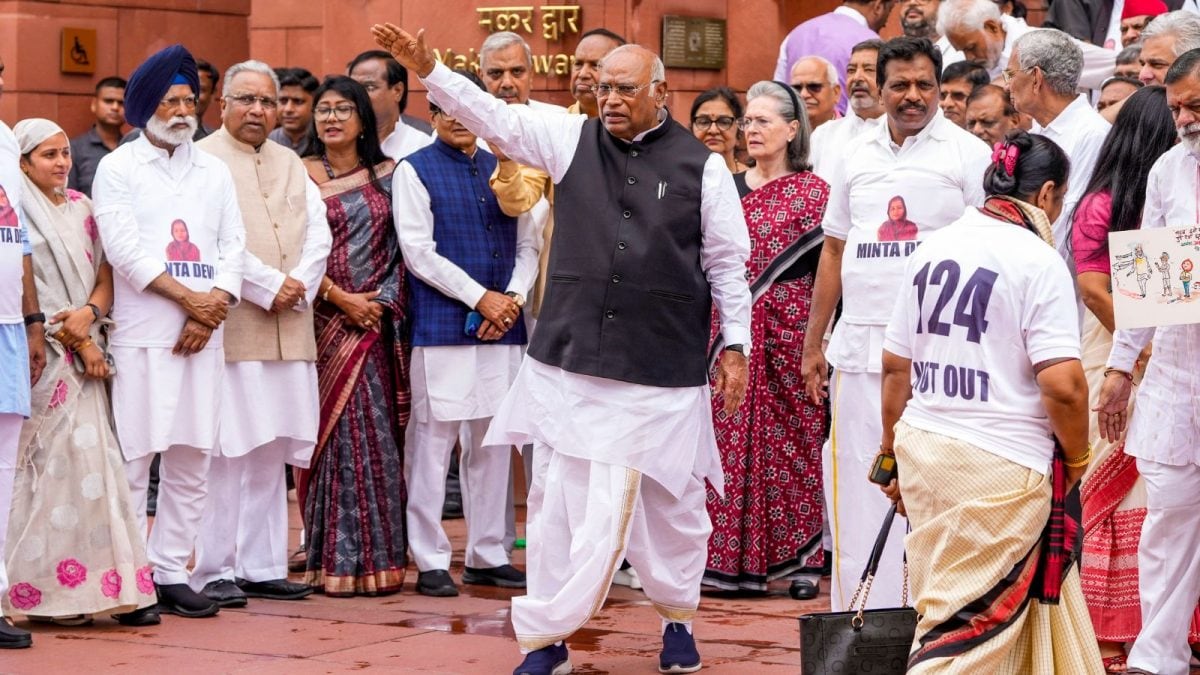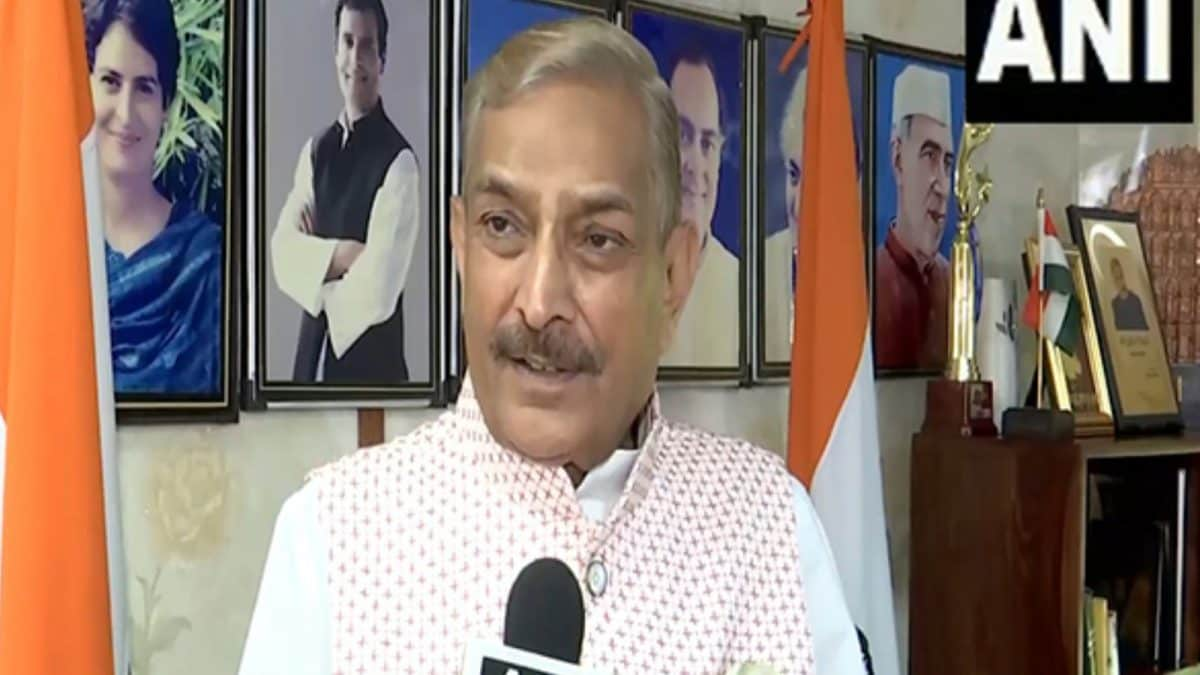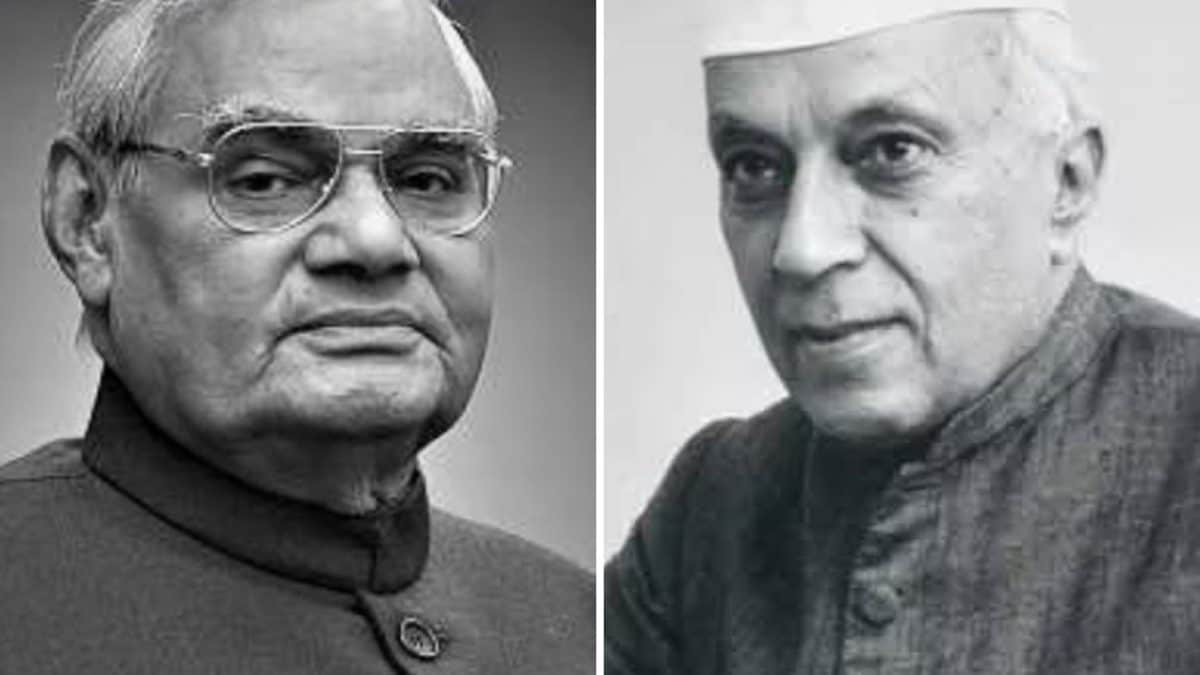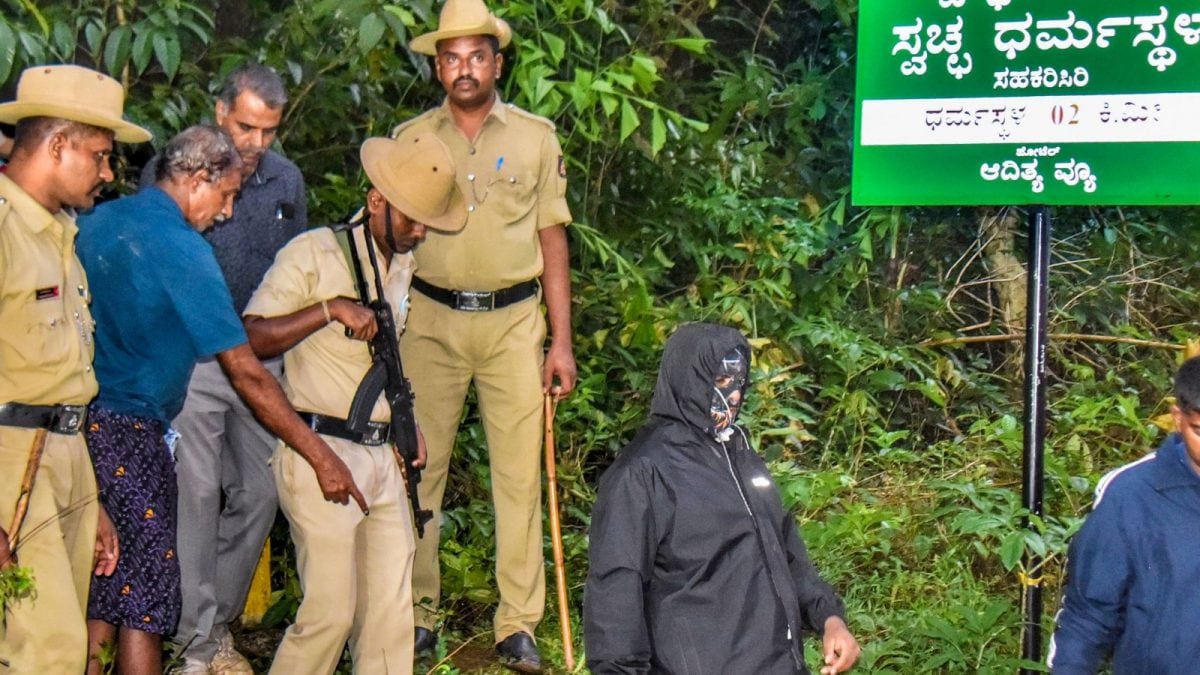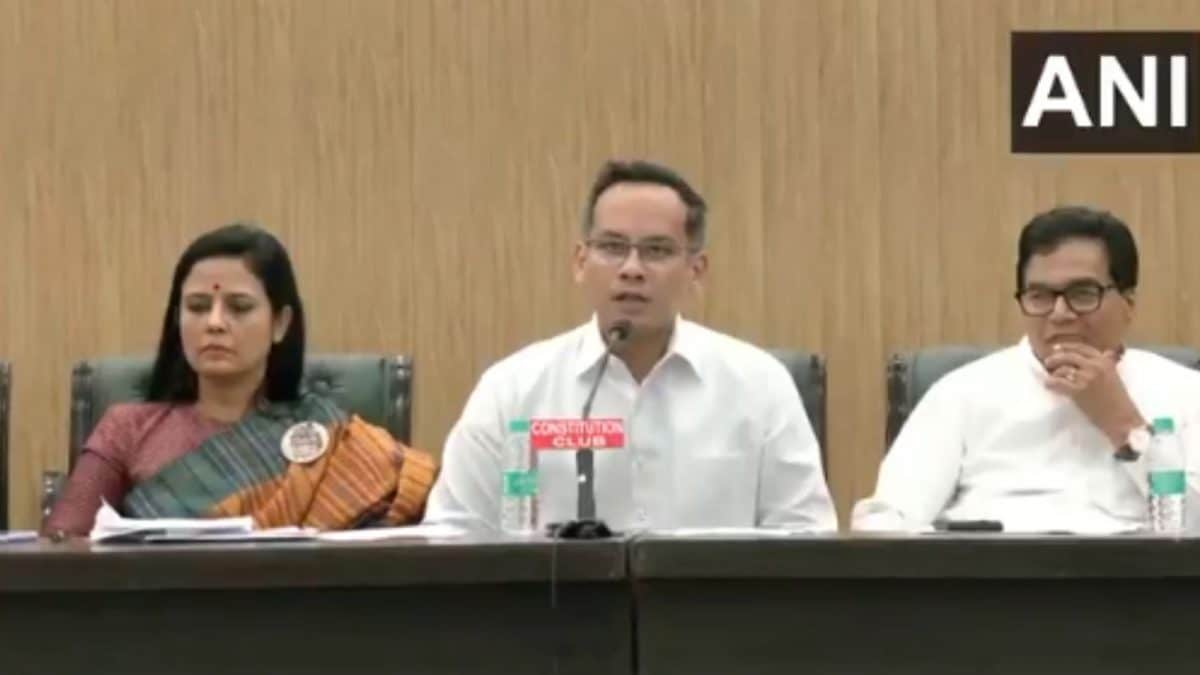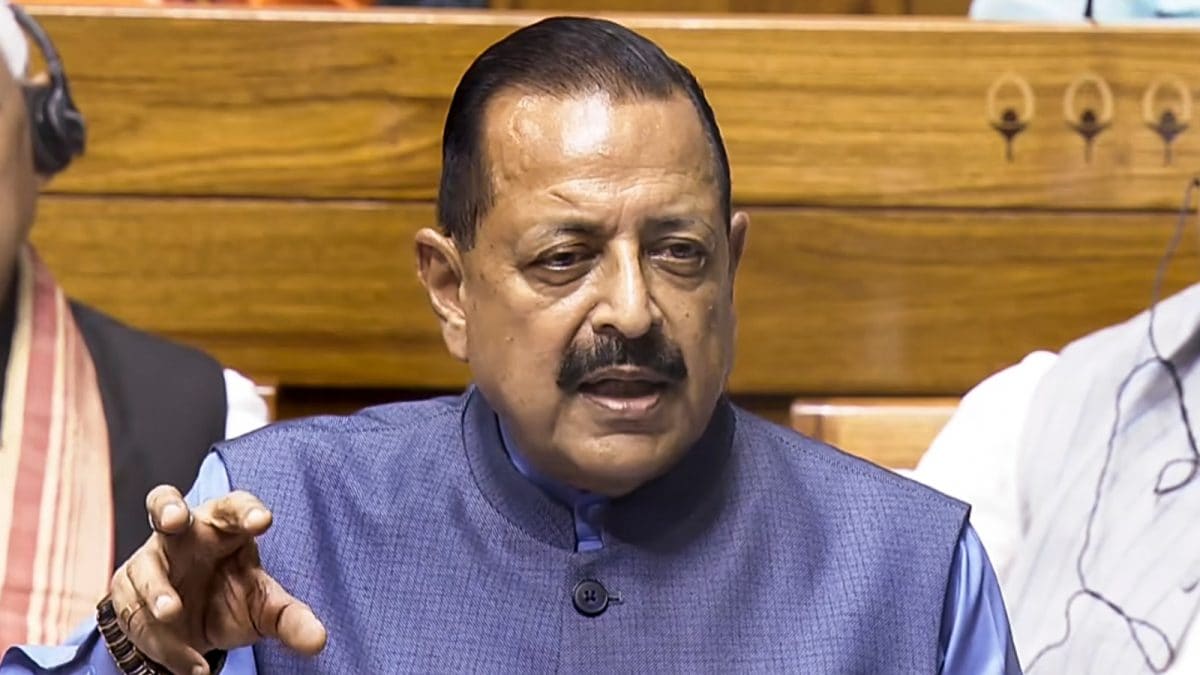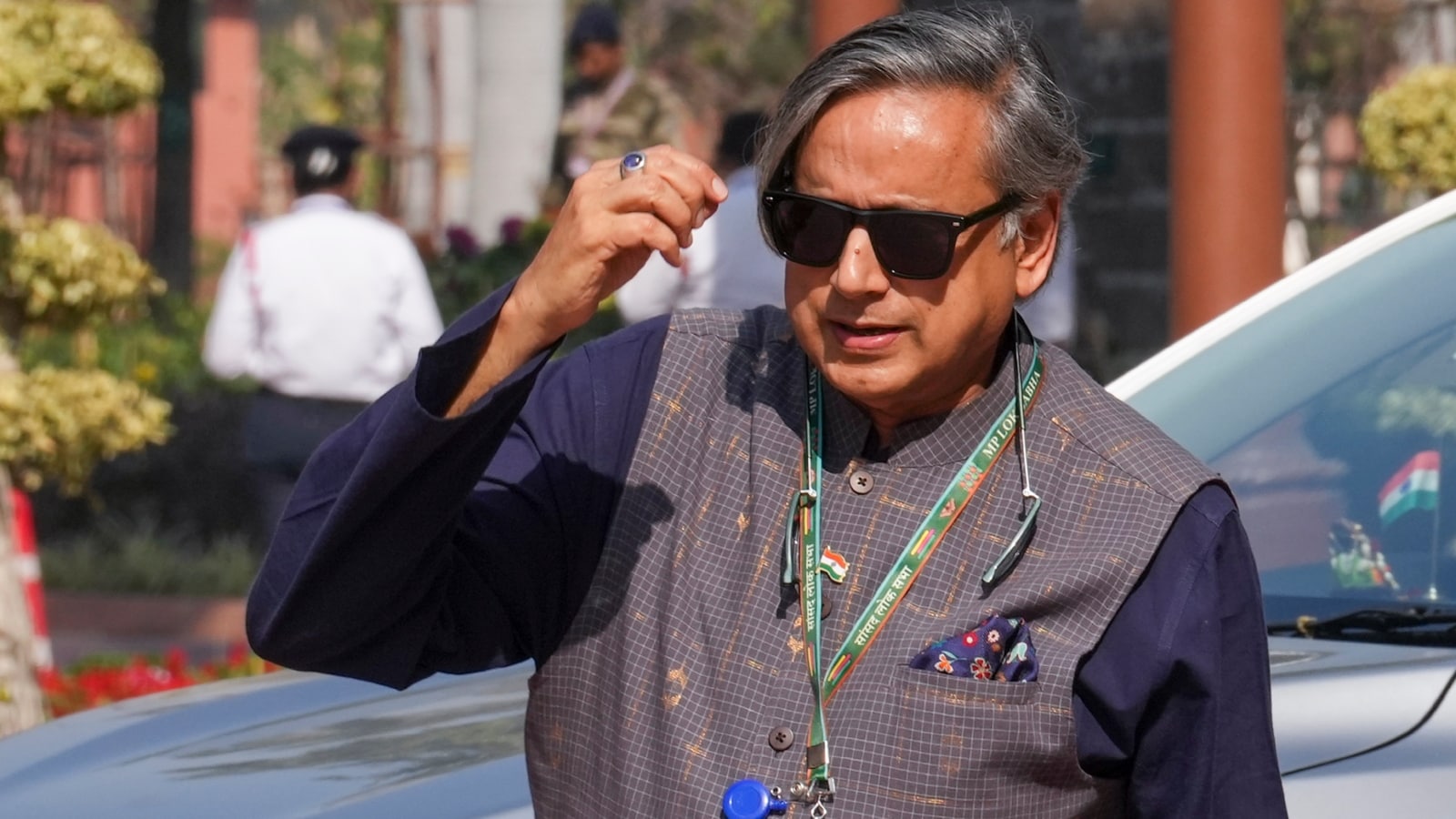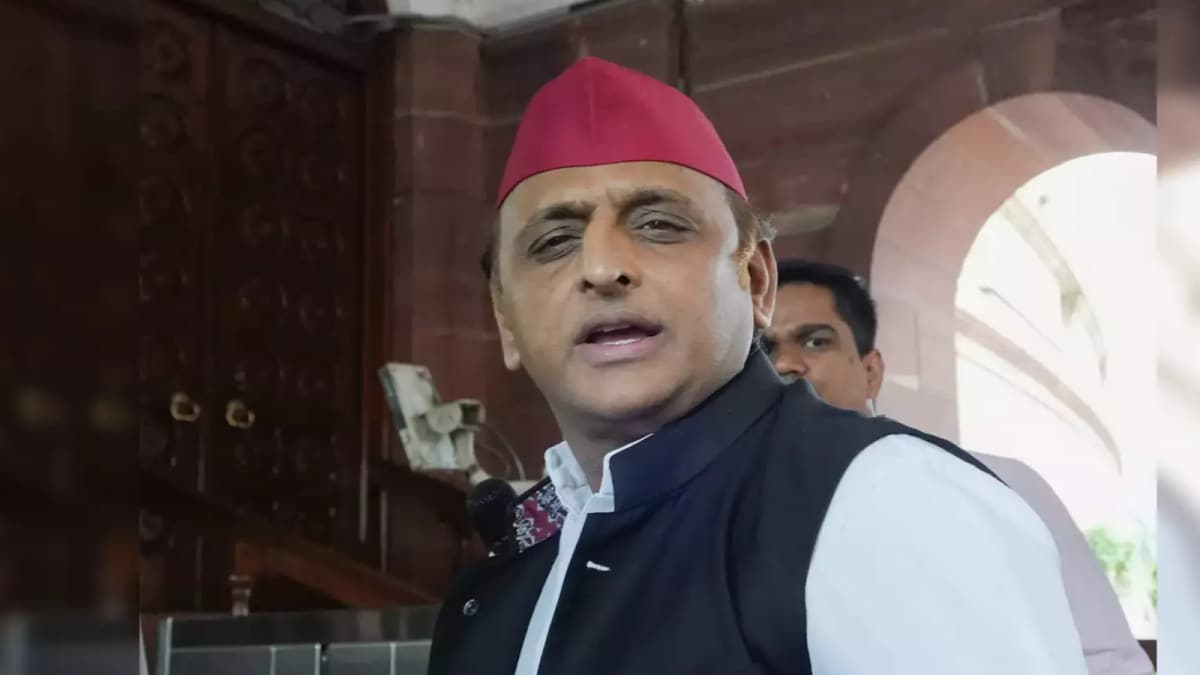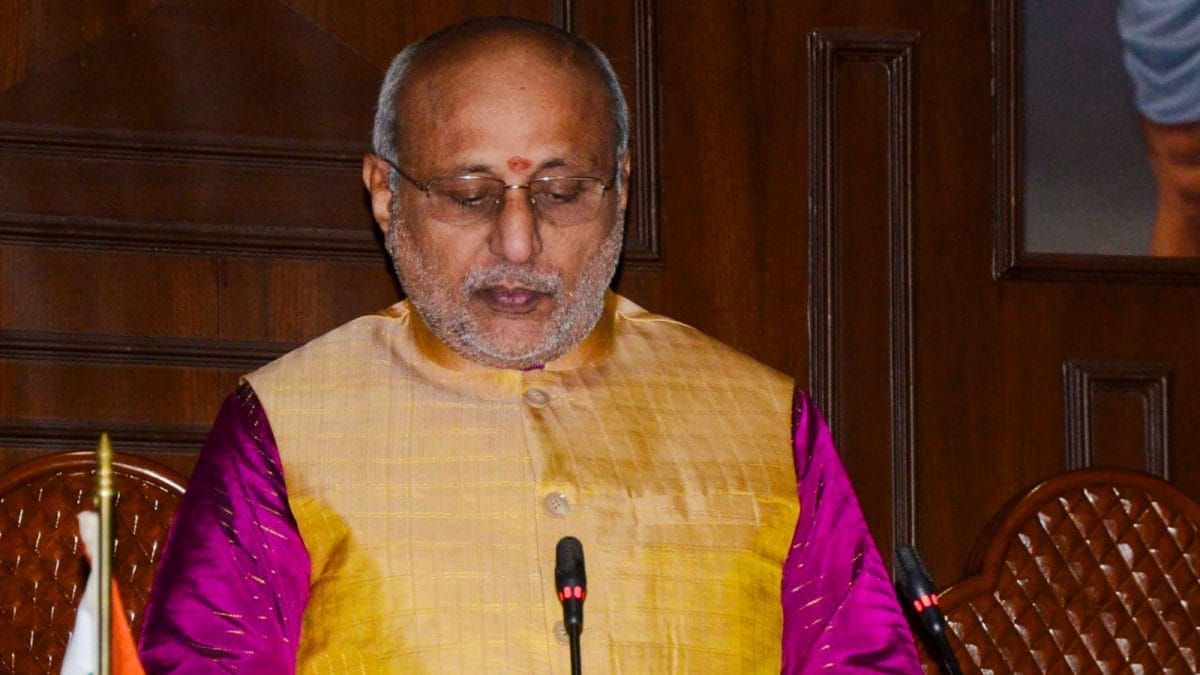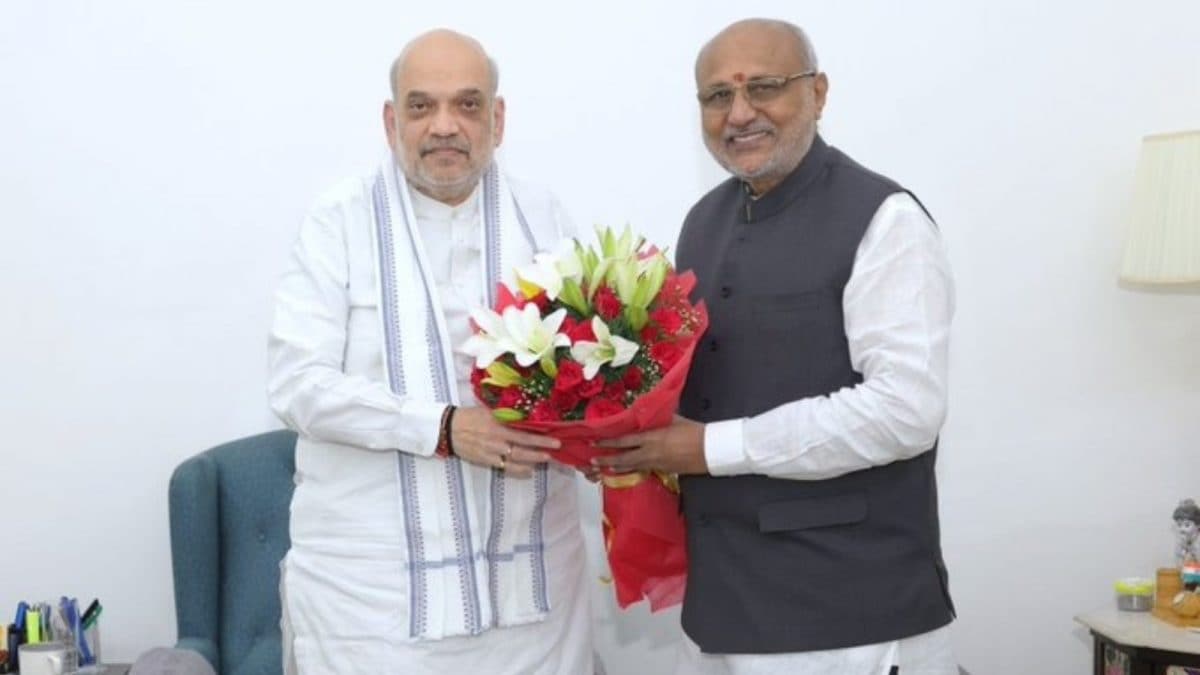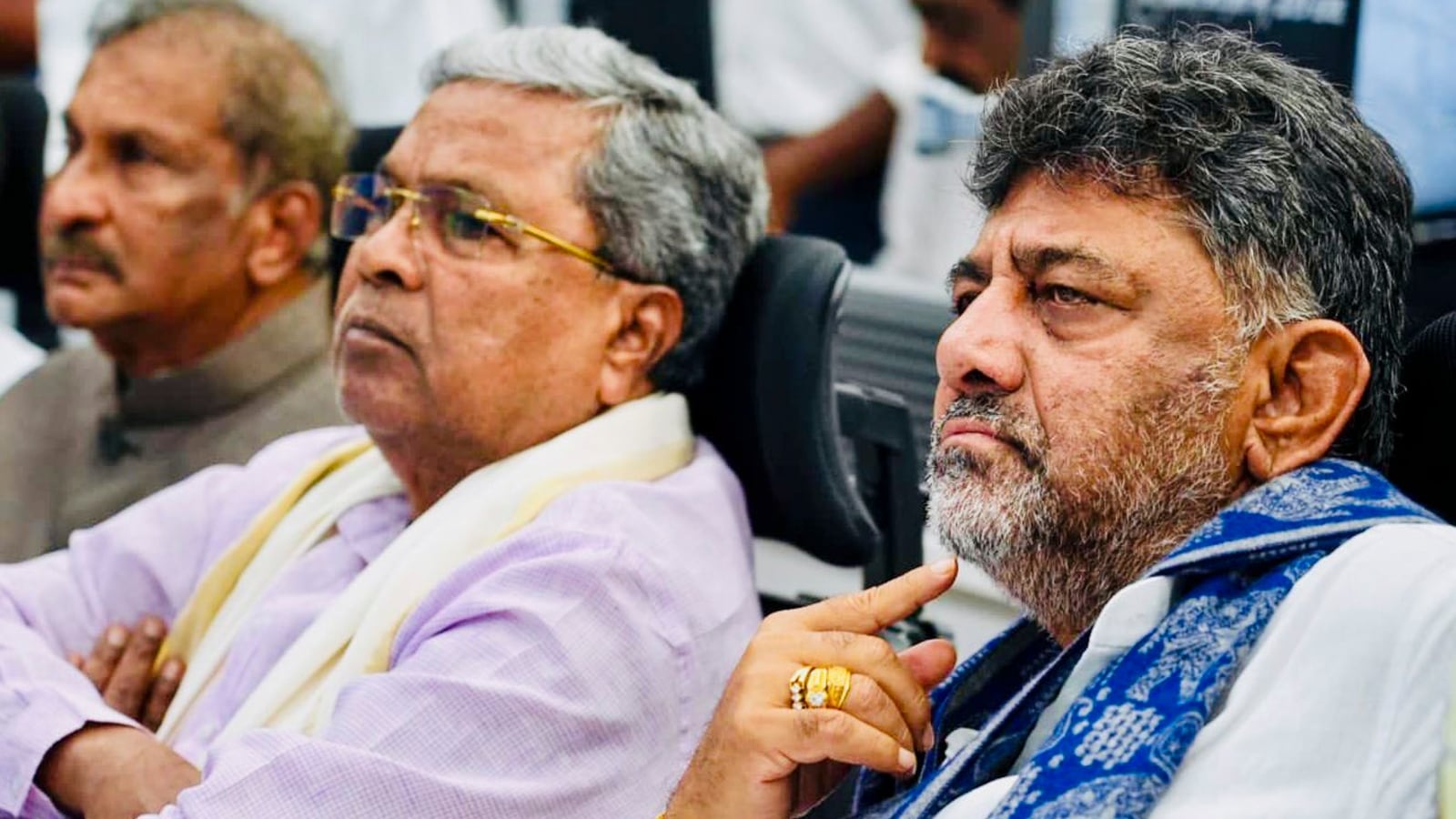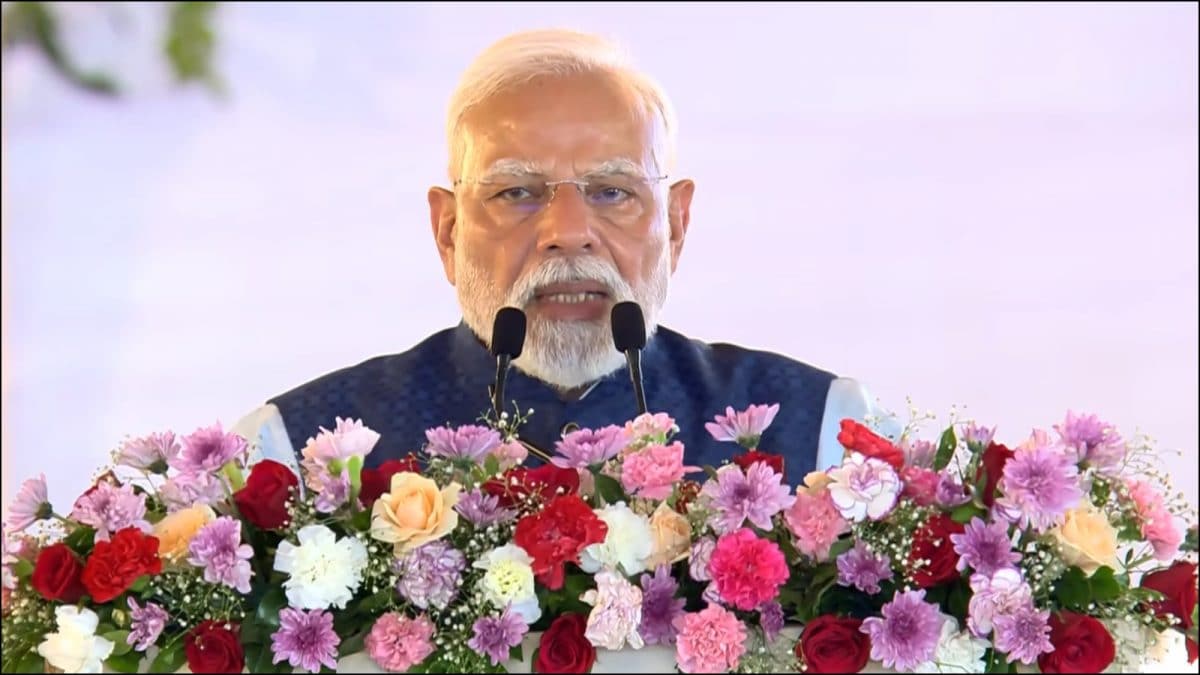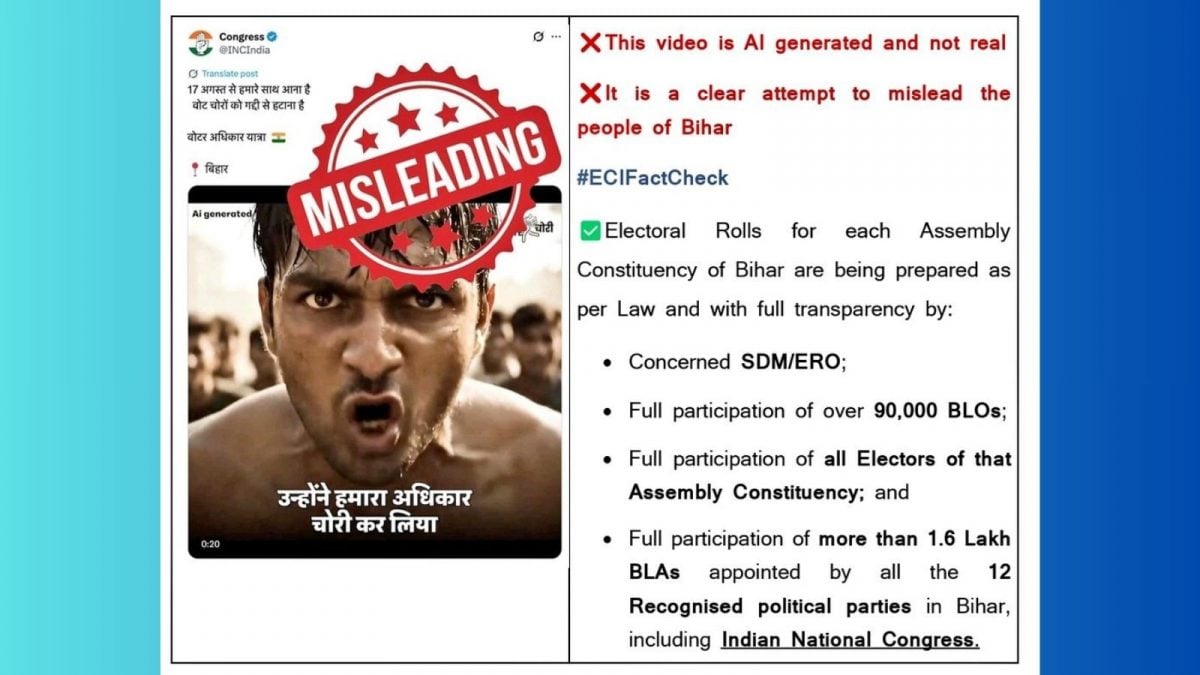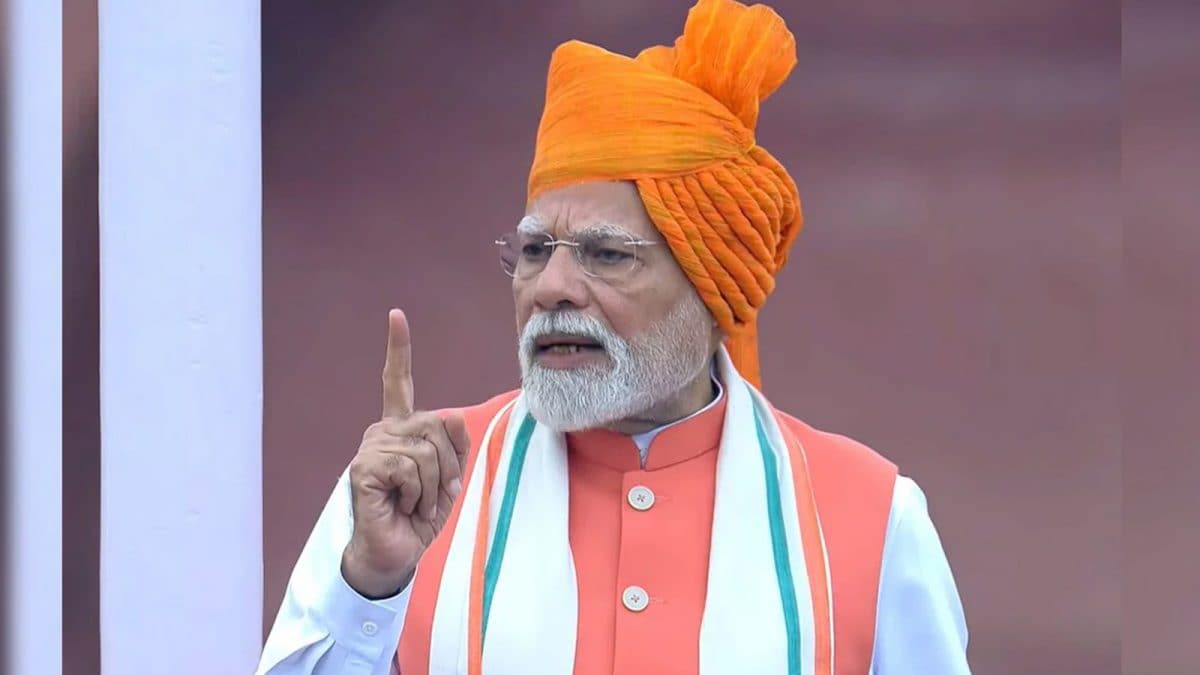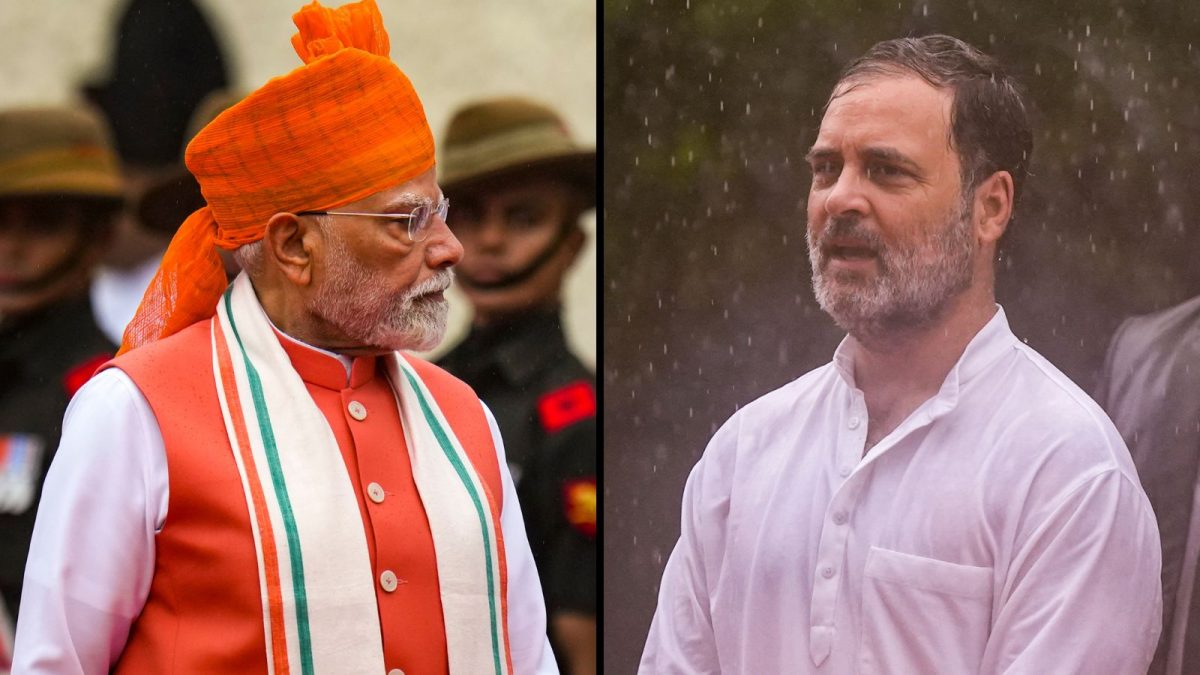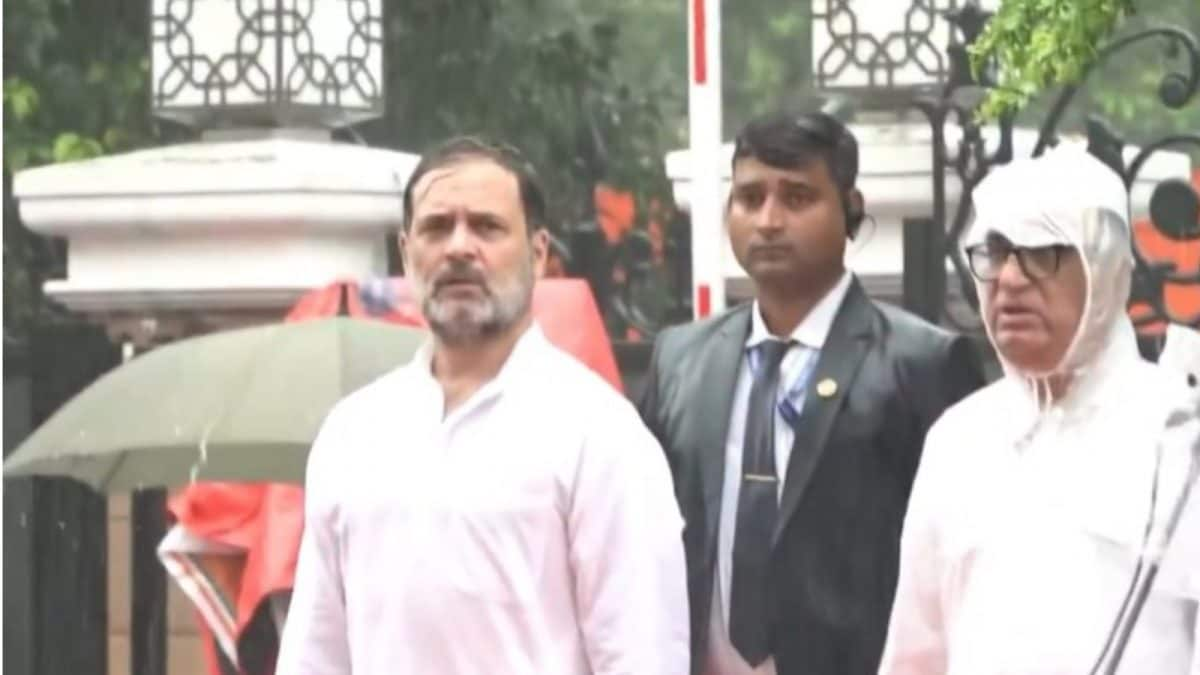Last Updated:June 25, 2025, 20:32 IST
A book detailing Prime Minister Narendra Modi’s journey during the Emergency was released on Wednesday by union home minister Amit Shah

The front and back cover of the book on Emergency released on Wednesday. (Image: X @BlueKraft)
The book “The Emergency Diaries: Years that Forged a Leader", released on Wednesday by union home minister Amit Shah, chronicles the journey of how a young Narendra Modi contributed to the struggle during the turbulent Emergency Era—a time when India’s democracy stood suspended and resistance was both dangerous and essential.
Published by BlueKraft Digital Foundation, the book narrates how Modi, despite being young himself at the time and there being a ban on the RSS and its branches across the country, coordinated with karyakartas across the country, offering strategic direction, moral strength, and unwavering support.
It describes one such incident shared by Bhanubhai Maheta, in-charge of Mordi district, BJP.
“During the Emergency period, many of the old karyakartas of the BJP in Porbandar were arrested. At that time, I was living there with my maternal uncle. Others joined Congress and were also forcing me to do so, but I resisted. At that time, I was young and scared. I contacted Makrand Bhai Desai, and he further helped me in contacting Narendra Modi. I explained my worries to him, and he told me not to worry. He said, ‘We should be strong during times of the Emergency; what we are doing at present is for the nation; there is no personal motive behind it. Democracy needs to win.’ And he told me to take care of my maternal grandparents. Even if all the members are leaving the party and you’re alone, it doesn’t matter. One is enough. Those words that he shared with me that day are still alive in my memory," the book quotes Maheta saying.
Modi’s resolve and ability to inspire others ensured that the spirit of resistance transcended state borders, motivating citizens to stand united against oppression, says the book.
In it, senior journalist Vishnu Pandya explains, “Because of the Emergency, many karyakartas were sent to jail, and the organisation took the responsibility of taking care of their families. There were also many families for whom securing a single meal was difficult. Modi and Nathalal Jhagda gathered whatever resources they could and worked to fulfill the daily needs of the families of those who had gone to jail. Neglecting this duty would have severely affected the morale of those incarcerated."
To address this challenge, the book says, Narendra Modi sought help from businesspersons and affluent individuals. They discreetly arranged for the distribution of provisions to the families of the jailed activists. This helped maintain hope for those in jail.
In the book, Rajan Dayabhai Bhatt, a Sangh Swayamsevak from Valsad, recalls Modi’s visits during that tumultuous period. He says, “During the Emergency, my father was underground. At that time, I was quite young. Many volunteers used to come to our aid. The incidents of help and support provided by Modi during those challenging times are still vivid in my memories."
Lalitaben Oza, a Sangh worker from Vadodara, also shares her memories of those days in the book. “There was a period when my father was in jail for fourteen months. Modi used to visit us every other day. He would ask if we needed rations or anything else, and he looked after us like a family member," she says.
Gargiben Dave, the Shaher Mahila Morcha Pramukh, while sharing her experience of the Emergency for the book, mentions, “My mother told me that Modi ji used to visit our village when I was born in 1976. Since it was during the Emergency, we were strictly advised to address workers and activists as ‘uncles’ so that their identities would be safe and they wouldn’t be caught by the police. To avoid the police, Modi ji came to our house, claiming that he was visiting my father because I was born and was also completing his work in the area. Other times, he would come to distribute tiffins and gather information."
According to the book, Modi often took note of the number of children and elderly members in each household and provided every possible assistance.
Rajesh Jaswant Lal Masrani, ex-Zilla Mahamantri from Valsad, states in the book, “Many people were being detained, and violent incidents were happening. At that time, Modi kept track of the families of every leader and activist in jail, inquiring about the number of children and whether they had enough to eat. Even while he was in one location, he kept himself informed about everything happening across Gujarat. Modi came to know about an RSS worker who had gone underground but whose family was facing constant police harassment. The authorities frequently raided their home at odd hours, causing immense distress. Understanding the toll it was taking, Modi advised the worker to surrender to ease the pressure on his family. He then assigned another karyakarta to look after the family and personally kept checking on them, asking whether the children were attending school and if they had enough to eat."
The News Desk is a team of passionate editors and writers who break and analyse the most important events unfolding in India and abroad. From live updates to exclusive reports to in-depth explainers, the Desk d...Read More
The News Desk is a team of passionate editors and writers who break and analyse the most important events unfolding in India and abroad. From live updates to exclusive reports to in-depth explainers, the Desk d...
Read More
News politics How A Young Narendra Modi Helped People During Dark Days Of Emergency, New Book Reveals

 1 month ago
1 month ago
